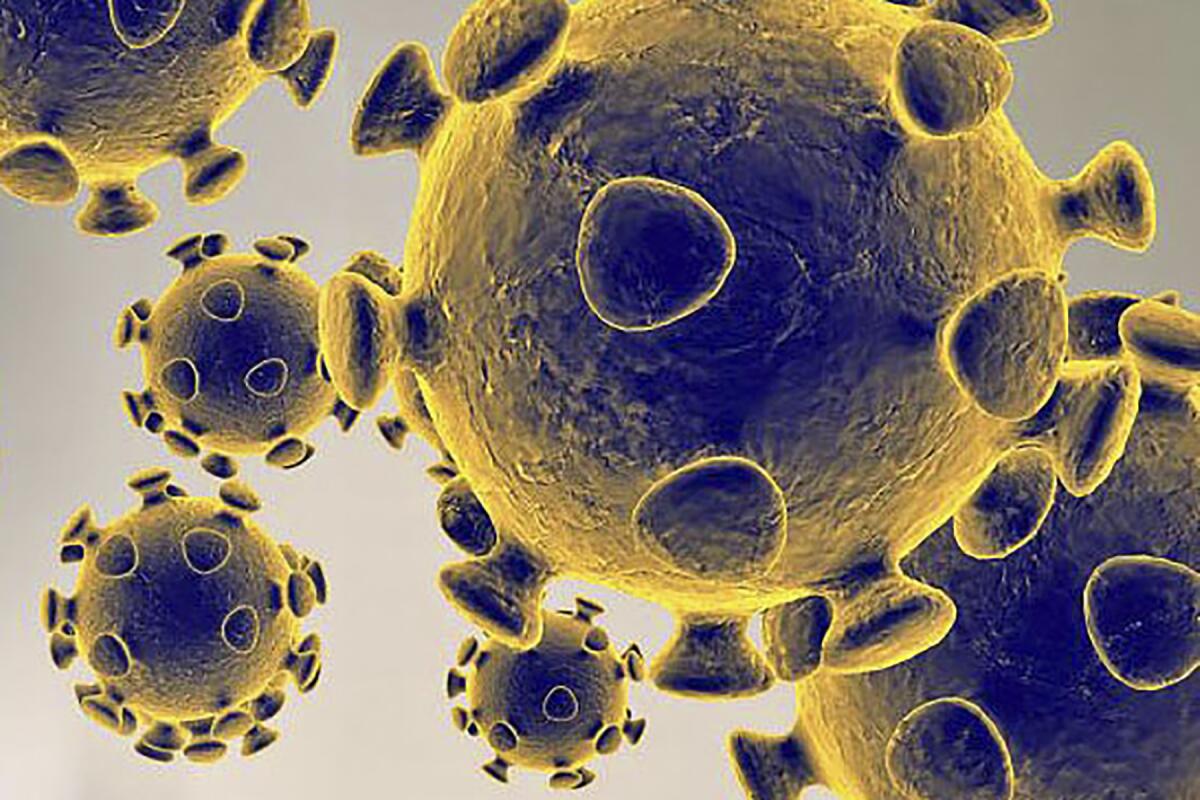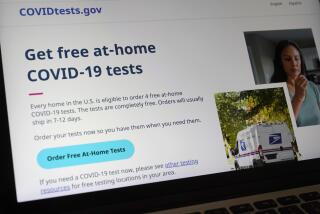Lack of accurate coronavirus tests sets back effort to limit infections

- Share via
For weeks, federal health officials told states that only the Centers for Disease Control and Prevention and a few other public labs could test patients for the new coronavirus.
That was because test kits that the CDC had sent to state and local labs across the country to do their own screening had a flaw that caused inaccurate results.
“It was a malfunctioning chemical,” said Kelly Wroblewski, director of infectious disease programs at the Assn. of Public Health Laboratories.
Now, officials say they have made changes so that California labs and three dozen other public labs across the country will be able to start testing for the virus.
The lack of tests for the coronavirus was made clear this week when a patient was diagnosed with the virus who had not traveled or been in contact with anyone infected. Doctors who treated the woman at UC Davis Medical Center said they had asked the CDC to test the woman but then waited days for that to happen.
The CDC’s flawed test kits stalled the surveillance testing that federal officials had said Feb. 14 would begin in Los Angeles, San Francisco and three other cities. CDC officials said then that the surveillance tests were aimed at finding patients in the community who had been unknowingly infected with the virus.
But by Thursday, fewer than 500 tests had been performed in the U.S., according to the CDC. In comparison, South Korea says it has been testing thousands of people a day.
“If you test less than 500 people, you can’t say at all what is going on,” said Michael Osterholm, director of the Center for Infectious Disease Research and Policy at the University of Minnesota.
Osterholm said the delay in testing could mean that many cases have gone undetected. “The absence of evidence is not the evidence of absence,” he said. “I expect a sizable jump in cases in the next few weeks.”
Said Wroblewski, “It’s unfortunate there was a delay with testing. Earlier is always better, but we were waiting for a quality test.”
Some state and local labs wanted to use their own tests they had developed in-house, Wroblewski said. But that was not possible after the federal government declared the coronavirus, known as COVID-19, a public health emergency at the end of January. After the emergency declaration, any test had to receive authorization from the federal Food and Drug Administration to ensure its accuracy.
After an appeal from the public labs association, federal officials said Thursday they were making changes so that 40 state and local labs would be able to test for the virus.
Wroblewski explained that the original test had three parts. The problematic third part, aimed at testing more broadly for coronaviruses and not just for COVID-19, gave off false readings. She said some labs will now be able to use the test without using the third part. At the same time, the CDC has modified the test and is manufacturing new kits that it will soon be sending to public labs.
She said she does not believe the test is less accurate when just two of the three parts are used.
Officials hope the 40 labs will be able to test for the virus by early next week — which would allow an estimated 4,000 tests a day, Wroblewski said. “We’re in a position to start the surveillance testing, I hope.”
Wroblewski said the association’s goal is to have 100 public labs performing the tests, which would allow 10,000 patients to be tested each day.
State officials said late Friday they expected to get a shipment of test kits to initially cover 1,200 people.
Some commercial labs are also working to develop tests for COVID-19, said Julie Khani, president of the American Clinical Laboratory Assn.
But only the CDC and other public labs are authorized to test for the virus in the U.S.
“At this time, commercial laboratories are not collecting, processing or transporting specimens from patients suspected of having, or confirmed to have, COVID-19,” Khani said.
More to Read
Inside the business of entertainment
The Wide Shot brings you news, analysis and insights on everything from streaming wars to production — and what it all means for the future.
You may occasionally receive promotional content from the Los Angeles Times.











